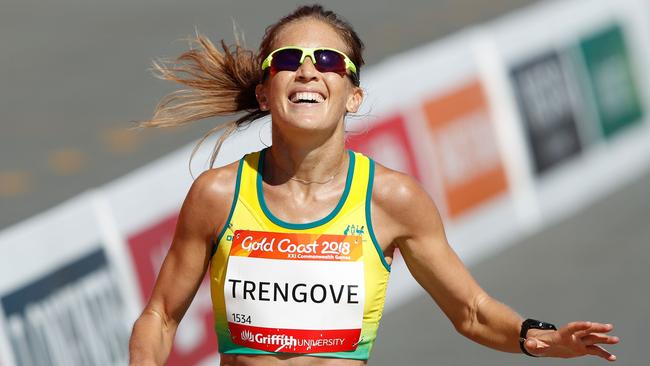Should Adelaide host the 2026 Commonwealth Games?
THE Commonwealth Games is either a world-class sporting competition that can transform a city or an expensive burden on taxpayers — depending on who you ask. Dan Jervis-Bardy looks at whether an Adelaide Games would be worth it.
City
Don't miss out on the headlines from City. Followed categories will be added to My News.
PICTURE this.
It is the final day of the 2026 Commonwealth Games and a 39-year-old Jess Trengove — in her swan song to the sport — sprints into Adelaide Oval to win the women’s marathon in front of an adoring home crowd.
A few hours later, more than 55,000 spectators pack the stadium for a sound and light spectacular to close the 10 days of competition.
Athletes — free from the stresses of competition and no longer holed up in the Games village in the CBD’s southwest — spill out into the city, zipping between restaurants and small bars on a network of trams.
Fireworks light up the night sky, illuminating the skyscrapers that have sprung up on the back of new infrastructure spending in the CBD.
Glowing with pride, Adelaide falls asleep content with how successfully it has staged its largest ever sporting event.
Nice image, isn’t it.
But is it a dream worth spending billions of dollars of taxpayer money to bring to life?
Would it be worth building hundreds of houses and stadiums for niche sports such as cycling, hockey and athletics for something once described as a “B-grade” event.
Australia would surely collect a trove of gold, but what riches — if any — would flow to the people of South Australia?
As the curtain falls on the Gold Coast Commonwealth Games, that is the question the State Government wants answered as it weighs up whether to bid to bring the event to SA for the first time.
Sports Minister Corey Wingard last week spent two days on the Gold Coast, touring Games venues and meeting with event officials.
Mr Wingard said Commonwealth Games Federation bosses hinted that it would defy convention and award hosting rights for future events — including 2026 and 2030 — at the same time.
He said the government was keen explore the potential benefits for South Australia before committing to a bid for either year, which it would likely have to finalise by the end of the year.
Those benefits, Mr Wingard said, would have to extend beyond the warm and fuzzing feeling of watching Australian athletes dominate competitors from across the Commonwealth.
“We need to evaluate what legacy is going to be left behind, long-term and into the future,” Mr Wingard told The City.
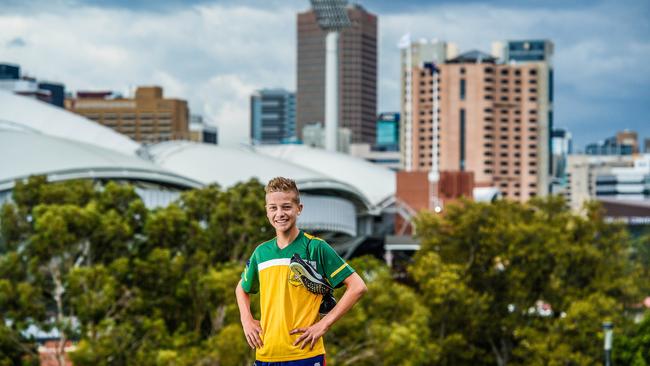
Legacy.
It is a term advocates for an Adelaide Games reference repeatedly in efforts to spruik the benefits of bringing the event to the City of Churches.
The potential for a Commonwealth Games to stimulate a housing, public transport and infrastructure boom for Adelaide is outlined in urban designer David Cooke’s 2016 study, Short Term Games, Long-term Gains.
In the 300-page study, Mr Cooke mapped out a vision for an Athletes’ Village in the city’s southwest corner, to be later converted into housing, new city tram loop, hockey centre and cycling velodrome in Victoria Park.
The event would cost about $2.6 billion, but result in a $4.4 billion economic boost and 41,000 jobs over the next decade.
Mr Cooke this week told The City that Adelaide needed the “spark” he was certain a Games would provide.
He said the Games would prompt all tiers of government to open the wallets for long-awaited — but repeatedly delayed — infrastructure projects, such as a city tram loop.
“Adelaide needs a catalyst like this desperately,” Mr Cooke said.
“The event is the spark that causes the reaction.
“It is the tool for urban regeneration and for a social and economic uplift that we need.”
The recent history of the Commonwealth Games support Mr Cooke’s premise, but also highlight the pitfalls of playing host to the quadrennial sporting showcase.
The Scottish Government’s final report into the legacy of the 2014 Glasgow Games, released this month, concluded that major sporting events were not a “panacea for long-running and social economic challenges”.
Even a short-term economic boost was not guaranteed, the report found.
Rather, the Games could be valuable when used to spur a long-term, well-planned urban regeneration of its host city.
Glasgow centred its event around the historically run-down, economically-depressed East End, which has seen construction of more than 2450 new homes and creation of more than 5000 jobs in the past five years.
The report found the Glasgow Games — delivered within a budget of about $1 billion — succeeded in not leaving behind “white elephants”, expensive, purpose-built stadiums that were rarely used beyond the week-and-a-half of competition.
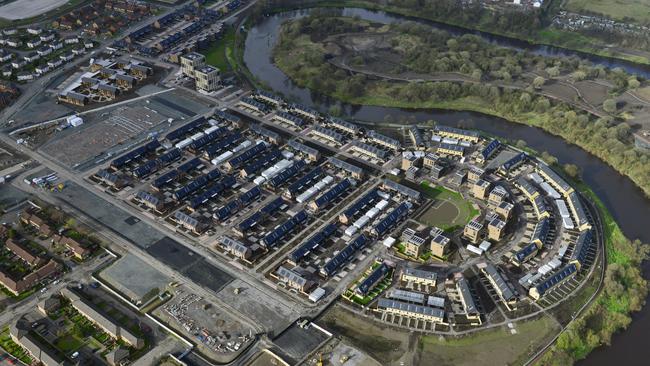
Manchester did the same in 2002; its venue for athletics and Rugby 7s is now the home of one of the world’s best — and richest — clubs, Manchester City.
In contrast, Delhi is full of “white elephants”, concrete reminders of a 2010 Games that were beset with high-level corruption, health concerns, poor crowds and crumbling infrastructure.
Mr Cooke warned against using the Delhi disaster to illustrate the perils of hosting the event, suggesting the reasons behind the decision to last year strip Durban of the 2022 Games were a better example of why potential hosts might baulk at the opportunity.
The South African Government was unable to provide financial guarantees to stage the event, forcing the Commonwealth Games Federation to pull the pin on what would have been Africa’s first global, multi-event competition.
It will now be held in Birmingham, the third British city to host the Games since 2002.
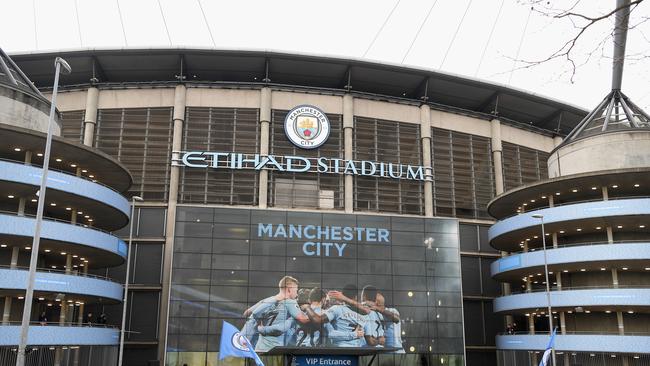
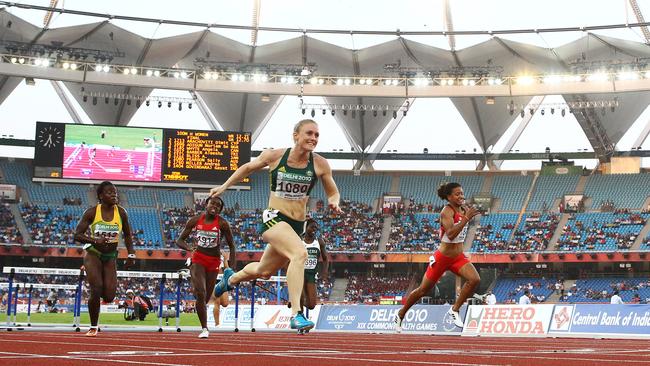
Australia has the money to stage the Games; the Gold Coast event has cost $2 billion.
The question is whether the South Australian Government has the motivation to bid for it.
It has before.
South Australia was beaten by Kuala Lumpur to host the 1998 Games and a decade later withdrew from the race after then-Treasurer Kevin Foley labelled it a “B-Grade event”.
There is support for a fresh bid, with Adelaide City Council last month voting to back any future Games push.
The State Government can always count on the SA Games Appeal Committee, part of the body charged with raising funds for local Olympic and Commonwealth Games athletes.
“We are very keen for the state to look at the pros and cons,” said committee member Mark Butcher.
“Why now? Because there is an opportunity to do it now.
“We could say no ‘let’s do it later’ — but later could be in 20 or 30 years.”
Mr Butcher, like Mr Cooke, said the event would focus the state’s attention, motivating both the public and private sector to bring forward investment.
And it would, of course, spur the next generation of South Australian athletes.
Isaac Heyne is one Australia’s best junior middle distance runners, last year winning the under-18 3000m at the national championships.
The Pembroke Athletics Club member would love to one day lace up the spikes for his country — regardless of the competition or location.
But he said it would be a dream to pull on the green and gold in Adelaide in front of friends and family.
Who knows, maybe he could be celebrating alongside Jess Trengove as one of the hometown heroes of Adelaide 2026?
Nice image, isn’t it.
